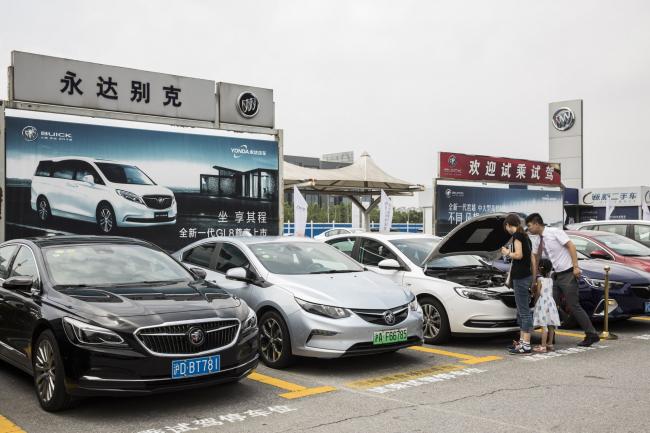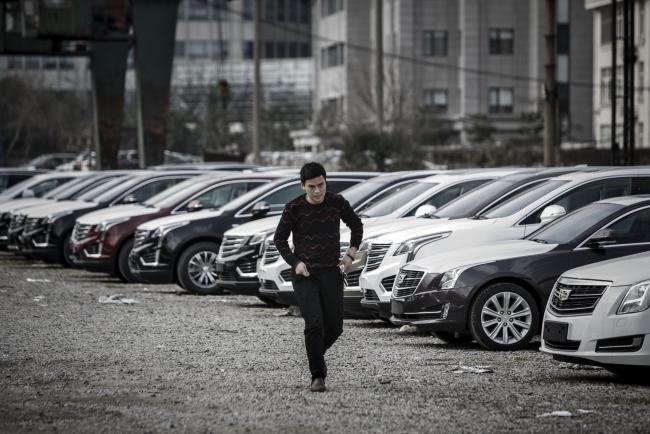(Bloomberg) -- Chinese auto sales fell in September for the 15th month in 16, extending their unprecedented slump despite government efforts to support the world’s largest car market.
Sales of sedans, sport utility vehicles, minivans and multipurpose vehicles dropped 6.6% from a year earlier to 1.81 million units, the China Passenger Car Association said in a statement Saturday. The only increase since mid-2018 came in June, when dealers offered big discounts to clear inventory.
The market has been hurt by a slowing economy and stricter emission rules, prompting the government to urge local authorities to boost consumption. Measures included easing car purchase curbs put in place to reduce pollution and traffic jams, though there’s not been much impact yet. The China Association of Automobile Manufacturers forecasts vehicle deliveries to dealers in 2019 will fall for the second time in three decades.
Sales of new energy vehicles — all-electric, fuel-celled autos and plugin hybrids — dropped for a third-straight month, tumbling 33% after the government scaled back incentives for purchases of such cars. Local brands, which had previously dominated the segment, began lose their grip as foreign joint ventures won market share. Particularly with plugin hybrids, joint-venture brands surged 80% in September while local brands slumped 60%, according to PCA. Sales of traditional hybrid cars jumped 61% to 29,000 units last month.
China sees electric vehicles as a strategically important industry and is mulling a target for 60% of all automobiles sold in the country to run on electric motors by 2035, people familiar with the matter have said. But China, which is flooded with about 500 aspiring electric-vehicle makers nationwide, is also seeking to raise the bar with the Ministry of Industry and Information and Technology issuing draft rules Wednesday proposing companies should have startup capital of at least 6 billion yuan ($850 million) to set up manufacturing operations.
As to individual automakers, General Motors Co (NYSE:GM).’s third-quarter deliveries in China tumbled 18% from the same period in 2018, while local manufacturer BYD Co. said September sales fell 15% from a year earlier.
The market wasn’t entirely gloomy. Honda Motor Co. said its China sales rose 4% on-year in September and Geely Automobile Holdings Ltd. reported a 12% increase from August, though the figure was still down 15% from a year earlier. Luxury brands are also seeing some growth.
Volkswagen (DE:VOWG_p) AG’s two Chinese ventures continued to lead the market, while Geely was still the biggest seller of local brand cars, according to the trade body. Shares of Volkswagen partner SAIC Motor Corp. rose as much as 1.6% in Shanghai.
(Adds sales of electric cars in fourth paragraph)

